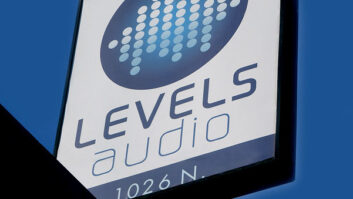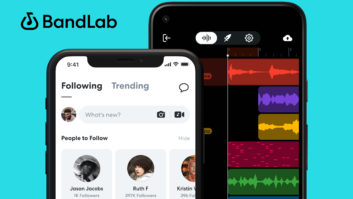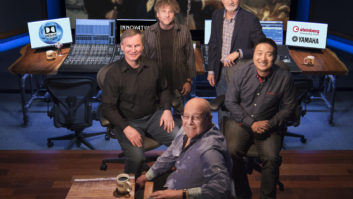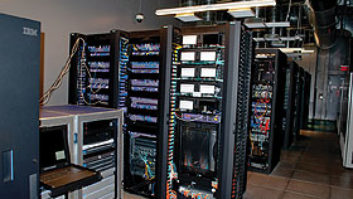
Last month’s AES convention epitomized our industry’s strange dichotomy, where “old-fashioned” analog thrives alongside cutting-edge digital. It’s a realm where century-year-old magnetic tape technology continues to coexist with silicon semiconductors. But this time, we also noticed a lot of talk about education on the show floor — from the inaugural METAlliance education summit to a breakfast hosted by the Recording Academy P&E Wing geared toward strengthening alliances with schools. And it’s apparent that manufacturers of old- and new-school technologies are increasingly targeting…schools.
Why is the recording community making this big push now? Lower-cost technology certainly makes it easier for manufacturers to make inroads into the education market; a school that might have used up its entire budget on a large-format console back in the day can now outfit an entire studio for the same price.
Most mature industries eventually form relationships with academia, whether on a Foundation level or through R&D pacts; the partnerships tend to benefit all involved. In the recording industry, schools are putting real-world technology in the hands of students, and manufacturers are able to expand their product reach. From a pure business standpoint, manufacturers know that they need to connect with the community — not just the schools themselves as a new sales channel, but with grads who form the link to emerging markets. (Think game audio and mobile applications.)
Also, users often form preferences early on, and smart manufacturers want to be there at the learning stage. Computer companies like Apple and Microsoft have pushed heavily to be in schools with laptop programs across the country. And MI companies have long known the value of aiming right down to the grade-school level. How many musicians out there took piano lessons in a room full of Yamaha Clavinovas or watched kids fumble with primitive recordings on My First Sony machines?
Of course, no amount of gear-fluency will replace a fundamental understanding of signal flow or critical-listening skills. But today, it’s also essential to be fluent in specific console and DAW systems. There’s a reason why classes that offer certification in everything from plug-ins to videogame engines are flourishing. Even at the entry level, skill sets need to be platform-specific. The Pro Tools operator is the new tape op.
George Massenburg, when talking about METAlliance’s education summit at AES, equated giving students access to technology with providing them an opportunity to be heard: “It’s a new world, and it’s going to require all of us in the professional recording business to understand that everybody will have access to tools that we had to beg for when we were coming up,” he said. “This access can only improve the access to that genius out there who has something to say musically and wouldn’t ordinarily find himself in a recording school. Give everybody a voice.”
Is an industry/academic partnership a good thing? We think so. If a studio manager is looking to hire interns and assistants, they’ll be better equipped with gear skills they can put to use right away. And if a student is looking to get a job as an audio engineer, more tools are available — hands-on — than ever before.
Thanks for reading,






